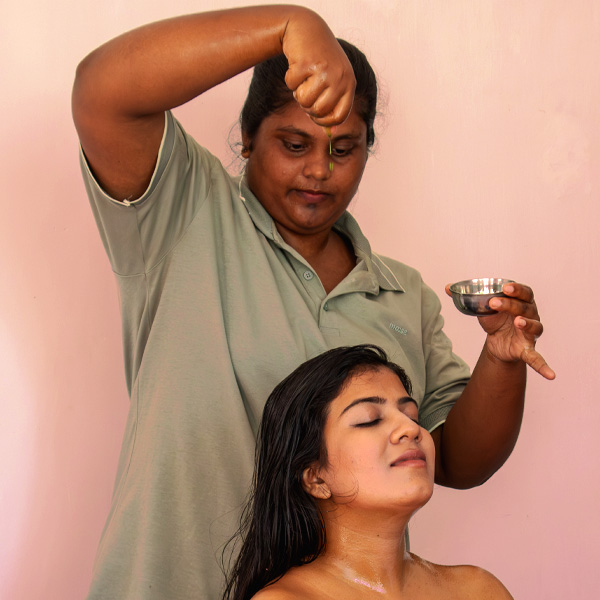Alopecia, or hair loss, is a common concern affecting people of all ages. It can lead to thinning hair, bald patches, or complete hair loss, impacting confidence and self-esteem. While hair loss can be frustrating, the good news is that it is manageable. With the right treatment, many people experience hair regrowth and improved hair health. Whether through conventional medicine, Ayurveda, or acupuncture, there are natural and medical solutions that can help restore not just hair but also confidence.
Hair loss can occur for various reasons, including stress, nutritional deficiencies, hormonal imbalances, and genetic factors. Environmental pollution, harsh hair treatments, and certain medical conditions can also weaken hair roots, leading to excessive shedding. Lifestyle habits, such as poor diet and lack of proper hair care, further contribute to the problem. Identifying the root cause is essential to finding an effective solution. Fortunately, several treatments can help nourish the scalp and promote healthy hair growth.
From the perspective of conventional medicine, alopecia is often linked to genetics, hormonal changes, autoimmune disorders, or side effects of medications. Conditions like alopecia areata occur when the immune system mistakenly attacks hair follicles, while androgenetic alopecia is influenced by hereditary factors. Doctors may suggest treatments based on the underlying cause, such as hormone therapy, topical solutions, or nutritional supplements.
Ayurveda views hair loss as an imbalance in the body's doshas, particularly excess Pitta (heat) in the system. Poor digestion, stress, and toxin buildup can weaken hair follicles, leading to thinning and baldness. Ayurveda emphasizes restoring internal balance through herbal remedies, dietary adjustments, and stress-relief techniques. Natural oils and herbs like Bhringraj, Amla, and Brahmi nourish the scalp, strengthen hair roots, and support overall well-being.
Acupuncture, a traditional Chinese healing method, attributes hair loss to disrupted energy flow (Qi) and poor blood circulation to the scalp. According to acupuncture principles, when energy pathways are blocked, hair follicles do not receive enough nourishment, leading to shedding. Acupuncture therapy stimulates key energy points, enhancing circulation, reducing stress, and restoring the body's natural healing process. By improving blood flow to the scalp, acupuncture helps revive dormant hair follicles and promote new growth.
In conventional medicine, hair loss treatments include topical applications, prescription medications, and advanced procedures like laser therapy or hair transplants. These approaches aim to stimulate hair regrowth and prevent further shedding.
Ayurvedic treatments focus on internal healing by balancing doshas through herbal remedies, dietary changes, and scalp massages with natural oils. Ayurveda also encourages stress reduction through yoga and meditation, as emotional well-being plays a key role in hair health.
Acupuncture works by restoring energy balance and enhancing blood circulation to the scalp. Fine needles are placed at specific points to strengthen hair follicles and encourage regrowth. When combined with Ayurveda, acupuncture enhances the body's ability to heal naturally, making the treatment more effective and long-lasting.
Ayurveda and acupuncture work together to address hair loss holistically, treating both the internal and external factors. Ayurveda nourishes the scalp and strengthens hair follicles with natural herbs, while acupuncture boosts circulation and relieves stress, which are major contributors to hair loss. When combined, these treatments complement each other, offering a powerful and natural approach to restoring hair health. Unlike conventional treatments that often focus only on symptoms, Ayurveda and acupuncture promote long-term healing. Many people who have tried this combination have experienced not just hair regrowth but also improved overall well-being, making it a promising solution for lasting results.

